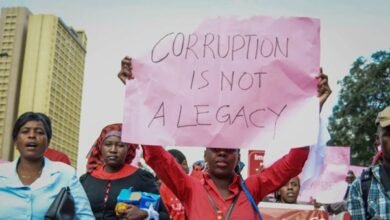Dr Arnaud OULEPO : advocating for a citizenship-by-investment program in Côte d’Ivoire
Côte d'Ivoire, a country of integration, is home to several nationalities. Some, active in the economic sector, are occupying more and more space. For Dr Arnaud OULEPO, a specialist in public international law, international investment law and investment arbitration, citizenship by investment programs should be introduced to harness the potential of this economic pragmatism.

By Dr Arnaud OULEPO*
Members of the Ivorian judicial police have recently arrested and then provisionally detained several Ivorian Lebanese businessmen, including high-profile bosses in the economic microcosm of this influential community, for their alleged direct or indirect involvement in acts likely to constitute crimes of fraudulent acquisition of Ivorian nationality and passport trafficking. The reappearance of these facts in the news highlights the fragility of the civil status and administrative machinery for properly assessing the conditions for granting Ivorian nationality. From the most anecdotal to the most serious cases, one thing remains constant: Ivorian nationality seems to be a commodity available to the highest bidder, provided he or she has the financial resources, the right network and the right contacts. The authorities are aware of this and are doing their best to find an adequate response to this scourge. Most recently, the Nationality Code has been amended regarding the acquisition of Ivorian nationality through marriage. To prevent marriages of convenience, the State now requires a probationary period of five years before a foreign spouse can acquire Ivorian nationality.
Unlike other waves of immigration to Côte d’Ivoire, Lebanese immigration is a resolutely economic immigration whose origins lie in the modern history of Côte d’Ivoire. Resolutely integrated into the Ivorian society to which they belong, they are responsible for many of the jewels of the Ivorian economy and make a significant contribution to the country’s economic influence.
In 2022, the Ivorian passport was ranked 79th, with access to 59 visa-free countries, including those in the West African zone
A tradition that has not diminished over the generations. In addition to Lebanese nationals, many foreigners find Côte d’Ivoire to be a « land of hospitality », a model of a pleasant way of life, a land of opportunities, a land of possibilities. According to the Henley Passport Index, which measures the international mobility of passports, the Ivorian passport ranks 79th in 2022, with access to 59 visa-free countries, including those in West Africa. This is an important value proposition for any foreign operator wishing to take advantage of the region’s opportunities and single regulatory framework.
The facts described above, the legal outcome of which we do not wish to prejudge in view of the ongoing investigation, have unfortunately brought discredit and suspicion on so many foreigners who are now Ivorians in strict compliance with national laws.
It is true that the acquisition of Ivorian nationality by foreigners has long been the subject of controversy and manipulation. The main issue of eligibility for the presidential elections has very often overshadowed the reality of positive Ivorian law. Any foreigner can acquire Ivorian nationality, subject to the conditions laid down by the laws of the Republic. This has led to an almost Pavlovian reflex in the minds of many Ivorians to determine who is really Ivorian by the mere mention of a family name or even the color of their skin. We must face the social reality that Côte d’Ivoire is cosmopolitan and multicultural, and above all the economic reality that our economic growth is the result of the combined efforts of our fellow citizens and the major contribution of foreigners. This is also the « New Ivorian », a concept dear to the Ivorian authorities.
The Ivorian authorities should consider setting up a citizenship by investment program
Given the attractiveness of Ivorian nationality for many foreigners, the Ivorian authorities should consider setting up a citizenship-by-investment program to strengthen the system for granting nationality and, above all, to legalize a practice that has always existed (at least unofficially). The concept originated in the 1980s when Caribbean Island states such as Saint Kitts and Nevis, Antigua and Barbuda, Dominica, Grenada and Saint Lucia, whose economies were heavily dependent on tourism revenues, decided to take advantage of the possibility of greater international mobility offered by their passports. Under various arrangements, but always in exchange for investment in pre-defined priority sectors, foreign nationals can obtain the nationality of the country concerned through an accelerated procedure that departs from the conditions of ordinary law.
Citizenship by investment programs have since then proliferated in several countries, particularly in Africa, with pioneers such as Mauritius, the Seychelles and Egypt. Others, such as Kenya, Tanzania and the autonomous region of Zanzibar, are in the process of incorporating them into their FDI promotion strategies. Citizenship by investment programs is not without their critics.
Côte d’Ivoire needs to embrace this economic pragmatism
Investigations have revealed cases of corruption among the administrative authorities responsible for managing the program, as well as the use of the program by people wanted for crimes, money laundering and other offenses. The mechanism has at least the merit of economic pragmatism. Côte d’Ivoire needs to embrace this economic pragmatism.
A citizenship by investment program in Côte d’Ivoire would provide additional resources to finance the objectives of the various development plans. Côte d’Ivoire’s investment code provides tax incentives for all foreign investors who invest in regions other than the economic center of Abidjan and its environs. At the very least, the Citizenship by Investment Program should encourage foreign investors to move to these areas (divided into zones A, B and C) and finance development projects of a minimum value to be determined (e.g., 500,000 euros) in exchange for Ivorian citizenship for themselves and their closest relatives.
The practical implementation of the program will require an amendment to the nationality code, a benchmarking of existing best practices to position the Ivorian offer competitively and potential target countries, identifying a national agency to manage the program, an assessment of the advisability of subcontracting the international promotion of the program to an experienced firm, and the introduction of rigorous screening mechanisms to reduce the risk of fraudulent use of the mechanism. A think tank will be set up with the participation of various Ivorian and foreign experts. Crises are often an opportunity to imagine new possibilities, and this « scandal » is an invitation to do just that.
Dr Arnaud OULEPO
PhD Candidate at University Cadi Ayyad, Morocco Investment and entrepreneurial policy legal counsel






